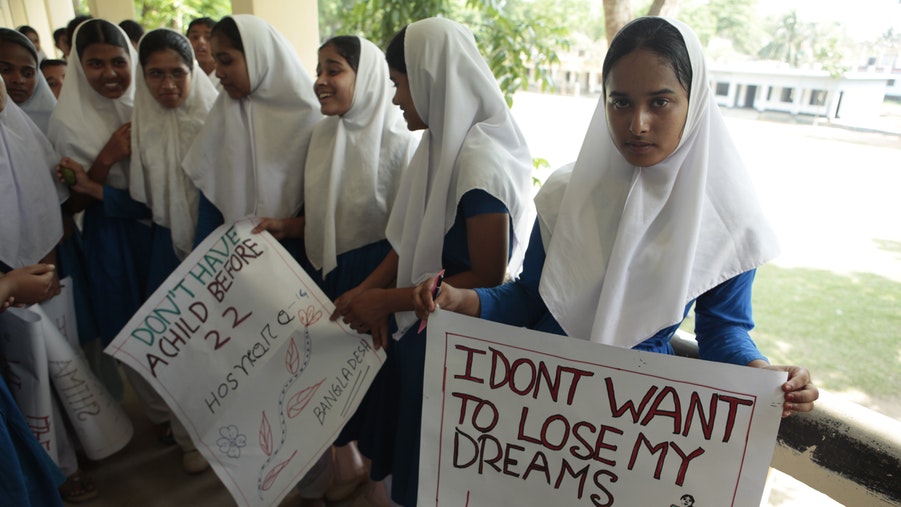Immigration New Zealand has approved more than 20 partnership visas for child brides and grooms married or engaged to people living in or migrating to New Zealand during the past decade.
New Zealand is failing to protect child brides and organisations like Shakti are left to pick up the pieces. Our immigration service recognises marriages that occurred overseas even if they know that the marriage was forced and the bride, according to New Zealand law, is too young to be legally married.
[…] Mengzhu Fu, national youth co-ordinator for the ethnic women’s charity Shakti, said teenagers often reported being pressured into marriage by their parents.
Young migrant brides and grooms whose immigration status depended on their spouses were highly vulnerable to violence, especially if they had little understanding of English or New Zealand’s immigration system, she said.
“When there is coercion in these marriages, young women often suffer domestic and sexual violence, forced pregnancies and long-term trauma. If they want to leave a forced marriage, they often have to risk cutting ties with their whole family.”[…] Since 2010, 35 young teenagers who were forced or coerced into marriage had sought help from Shakti. The average age of victims was 16.
Our law is an Ass, as is our immigration service, as they put other people’s cultures before the rights of girls to be protected once they become New Zealand citizens.
Our law and our immigration service are flawed, because if the marriage occurred overseas, they will make no attempt to find out if the bride was forced into the marriage.
Before a 16- or 17-year-old can legally marry in New Zealand they must convince a Family Court judge they are not being pressured into the relationship and understand what it means.
But an INZ spokesman said marriages that took place overseas were exempt from that process: “The only requirement is that the marriage is legally recognised in the country where the marriage took place.”
[…] Fu said before granting partnership visas to minors INZ should conduct thorough, culturally-sensitive assessments to ensure all parties fully consented.
Human rights lawyer Frances Joychild said part of the Marriage Act which allowed for young women to enter into culturally arranged marriages was problematic.
“Just because it is culturally appropriate for a 16-year-old to marry a man significantly older than her does not mean that she is not being forced or coerced into a marriage she may not want.”
She backed calls by Unicef and the Human Rights Commission to raise the legal marriage age to 18 in all circumstances and said a Family Court judge should assess marriages of teenagers before INZ approved their partnership visas.
[…] INZ assistant general manager Peter Elms said INZ was aware some culturally arranged marriages were forced marriages.
Stuff
Staff considered visa applications for culturally arranged marriages carefully and extra scrutiny was given to applications involving people younger than 20.
“We may decide to interview the applicant and partner or even conduct a visit to the couple to help determine that the relationship is credible, genuine and stable,” Elms said.
Immigration officers completed training on domestic violence and human trafficking, he said.
What the above article fails to explain is what action (if any) the Immigration service will take if they discover that the relationship is not “credible, genuine and stable”. What help if any will be offered to the girl trapped in a forced marriage?
If they are aware that a girl is in a forced marriage why would they not remove her from what can only be described as cultural slavery? Is our Immigration service turning a blind eye to girls who are nothing more than sex slaves?
We cannot have equal rights for women in New Zealand on the one hand and deny those same rights to new citizens on the other because of their culture. Our laws should apply equally and they should protect girls equally. It is totally unacceptable that a girl should be left in a forced marriage in New Zealand because she had the misfortune to be born into a culture that treats her as a chattel.

